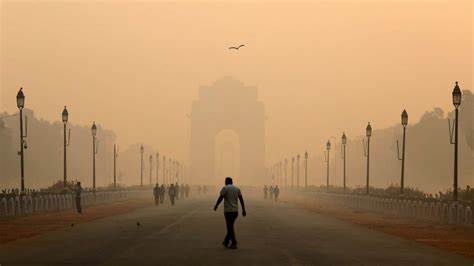ISLAMABAD: As New Delhi grapples with its annual winter smog crisis, India has pushed back against claims made by Pakistan’s Punjab Chief Minister Maryam Nawaz, who recently called for climate diplomacy between the two countries to tackle the pollution issue.
Nawaz, while addressing a Diwali event in Lahore last month, stated that smog from India’s Punjab region was a significant contributor to the air pollution in Pakistan, and she advocated for cooperation to address the growing crisis. She emphasized the need for joint efforts, noting that the winds do not recognize borders, as pollution travels across both sides. However, Indian officials have dismissed this assertion, arguing that the prevailing wind patterns this season suggest that smog from Pakistan is, in fact, a contributing factor to the toxic haze enveloping Delhi.
India’s Ministry of Environment and Climate Change pointed out that the wind patterns blowing from the northwest, which bring air from Pakistan and beyond, have caused the current levels of pollution in Delhi, confirming that some of the smog indeed originated from Pakistan. However, Indian experts also highlighted that Delhi’s pollution is primarily a result of local factors, including stubble burning in nearby states like Punjab and Haryana, along with industrial emissions and vehicle exhaust.
While Nawaz called for “matching responses” from India in dealing with the smog, Indian environmentalists suggest that local solutions—such as improving enforcement of stubble burning bans and reducing industrial emissions—are the immediate priorities. Critics argue that focusing solely on cross-border diplomacy could distract from the pressing need for stringent domestic measures.
With Delhi’s Air Quality Index (AQI) soaring to hazardous levels this week, reaching over 1,700, both Indian and Pakistani officials face increasing pressure to address the dire environmental and public health crisis. Environmentalists on both sides of the border agree that long-term solutions require both national and regional cooperation, but caution that immediate actions, particularly in terms of enforcement and policy implementation, are needed to combat the smog that chokes millions of lives annually.




